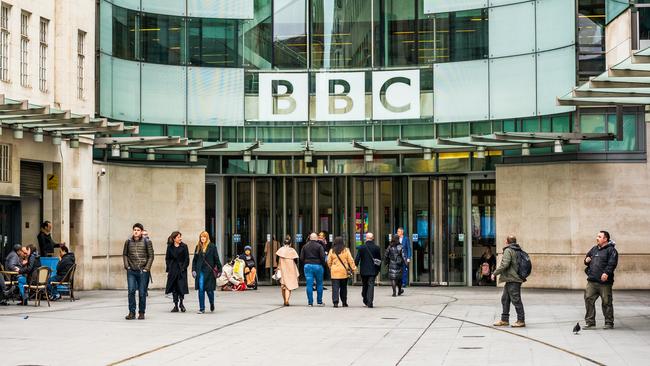BBC advises all staff to use trans-friendly pronouns
Broadcaster encourages staff to include pronouns in their email signatures, in drive to create more inclusive workplace.

The next time the BBC director-general opens his inbox, he may well have received an email from “Huw Edwards, he/him”, or “Laura Kuenssberg, she/her”.
The broadcaster is encouraging all staff to start including their pronouns in their email signatures, as part of a drive to make transgender and non-binary colleagues feel more welcome.
The new advice, posted on the official BBC intranet, applies to all the corporation’s employees, whether they identify as male, female or non-binary. Adding pronouns at the bottom of emails is a “small, proactive step that we can all take to help create a more inclusive workplace”, the guidance states.
Many trans and non-binary people have started introducing themselves with their preferred pronouns – including “they/them” – so people know how they wish to be addressed.
Encouraging everyone in an organisation to do the same raises awareness of gender diversity and helps to ensure that trans and non-binary people do not feel marginalised, campaigners argue. More than 400 BBC employees, 2 per cent of the total, identify as transgender, according to internal surveys.
The guidance suggests that all 22,000 people working at the national broadcaster should update their email signatures with their pronouns of choice. “It lets colleagues know your pronouns and shows that you respect other people’s too. It’s really simple,” the document states. BBC staff are urged to “help to create a culture where everyone feels comfortable introducing themselves with pronouns”.
The BBC is not the first British employer to adopt the policy. Last year Virgin announced that it was adding an optional pronouns field to its corporate email signatures. “Getting someone’s pronoun right can feel like a very small gesture, but it can mean the world,” Sir Richard Branson wrote in a blog publicising the initiative.
There is no robust data on the number of trans people in Britain, although the government estimates the figure at between 200,000 and 500,000. The 2021 Census is expected to include a question on gender identity.
A BBC spokeswoman said: “The BBC isn’t requiring anyone to do anything; there is simply a staff article on our intranet that talks about gender identity at work and the use of pronouns. This topic is a live issue in many workplaces.”
The Times







To join the conversation, please log in. Don't have an account? Register
Join the conversation, you are commenting as Logout